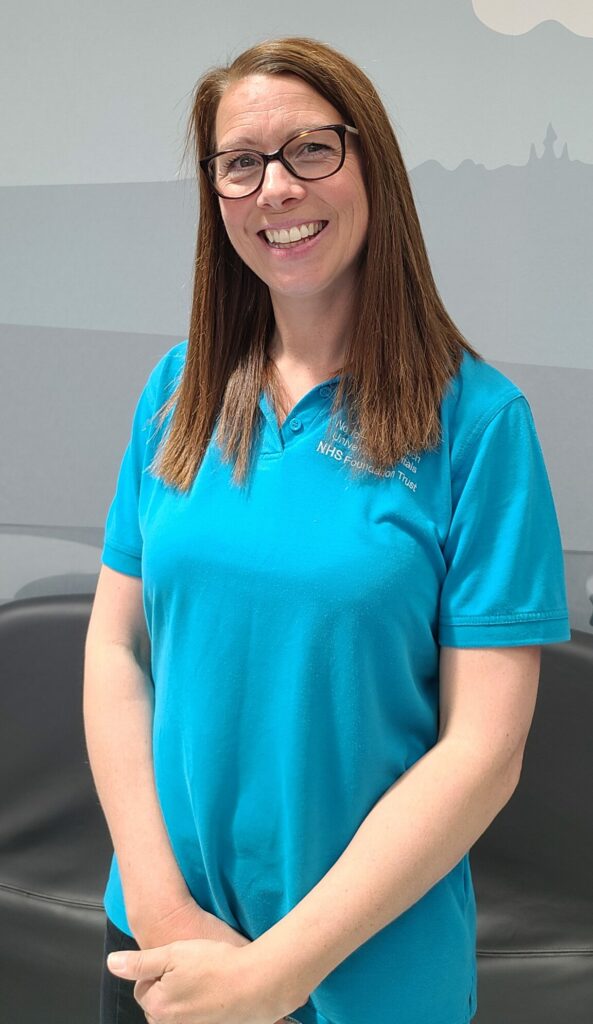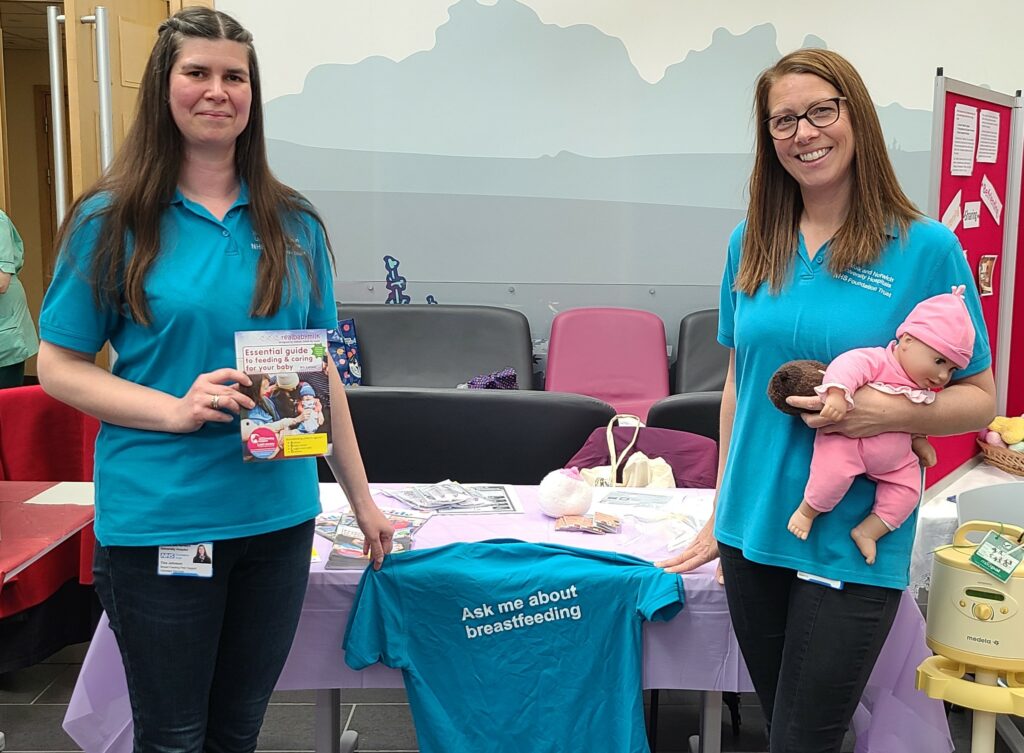August 2023 – Peer support offers mums an informed friend when needed!
Natasha Easter
Breast Feeding Peer Supporter and Co-ordinator, Norfolk and Norwich University Hospital
The Breastfeeding peer supporters play an important role at the Norfolk and Norwich University Hospital, offering practical guidance and a friendly listening ear to new mothers in the very first days. Natasha Easter, Breast Feeding Peer Supporter and Co-ordinator says “We work across the whole of Maternity in-patient areas: on Blakeney, Cley, Delivery Suite, MLBU & NICU. Our work entails supporting new mums with breastfeeding and caring for their baby. We help teach them how to hold their baby, position their baby for feeding and attach their baby to the breast. We also help them with hand expressing their milk, facilitating skin to skin contact and providing knowledge and information about bonding and feeding in the early days.”


The Breastfeeding peer supporters are a welcome addition to the ward staff team, having precious time to dedicate to the new mothers in a busy ward environment. Whilst the staff focus on delivering the clinical care to mothers and babies, the peer supporters provide additional guidance and companionship during a vulnerable time. A typical shift will involve gaining a clinical history relating to feeding experience so far, chatting to mums, supporting them with a breastfeed or expression and talking to staff members about the support that you have provided. “As well as meeting mums who are struggling to breastfeed, we see mums who are feeding well and might just need some reassurance or to have a chat about feeding, caring or signposting to additional support services” explains Natasha.
A key reason for the success of the Breastfeeding peer supporters is that the volunteers can truly relate the situation the new mums are in. Natasha started volunteering after having her second child and says “For me personally I think being able to really put yourself in the shoes of the women has been helpful. As a volunteer I can really understand what that mum is going through and understand it can be tricky. I can also reassure her that it can still work as I think some mums feel as though because it’s not going well on day one or day two that they’re not going to be able to breastfeed.”
Rather than the skills you might find on a CV, Natasha says the most important quality is for a potential volunteer to be able to build rapport so that they new mothers will trust them and the advice that they offer. Natasha says “some mums will chat easily whereas for others it takes a lot longer for them to open up to you. Luckily, we have that time and I think that’s key as the staff are super busy whereas we have that freedom to spend time with the mums for as long as they need. All our volunteers have breastfed their own children, which enables them to relate to and understand the mums experiences. Most of our volunteers are likely to have had some challenges during their own breastfeeding journeys too.”
One of the highlights of being a Breastfeeding peer supporter is the chance to see a baby feed, which happens less frequently than you might expect. Depending on their birth experience, some mums can be keen to get breastfeeding going, when their babies can be quite sleepy and less interested in feeding. Because of this, Natasha believes it is important for peer supporters to remember that they have made a difference even if they didn’t see a baby feed during their session. The evidenced-based information given by peer supporters help mums make informed choices on feeding their baby and in this way, they feel supported and empowered. Natasha says “you might think ‘oh it’s lovely just working with babies all the time’ but we don’t touch or lift the babies, so we don’t get to cuddle the newborns! Our role is “hands off” so the mum learns how to do it herself and gains confidence from being able to feed her baby without assistance. The peer supporter role is about building relationships and rapport with people, spending time with them and helping them learn the skills and gain knowledge around breastfeeding and caring for a baby.”
The peer supporters are there during a short but crucial moment in the journey of a new mum, and Natasha believes their role is a significant part of this new journey. Offering support not just in the moment, but signposting to ongoing support services, Natasha knows their activities make a big impact and support the mothers as they return home with their new baby.
If you are interested in becoming a Breastfeeding peer supporter or would like more information, please contact natasha.easter@nnuh.nhs.uk or infantfeedingco-ordinators@nnuh.nhs.uk
